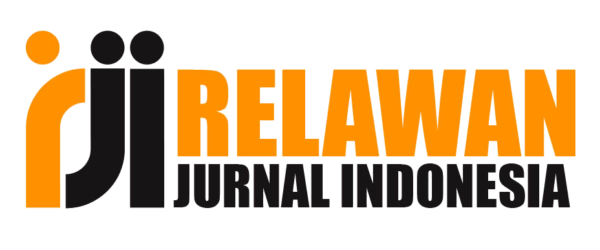Developing a Contextualized Assessment in Physics Learning Book for Physics Education Students: AsL, AfL, and AoL Frameworks
Abstract
Keywords
Full Text:
PDFReferences
Ahmad, L. S., Dian Utami, Tessa Zerina Naryamastri, & Hari Anggito. (2024). Dampak Pembelajaran Fisika Menggunakan Alat Peraga Venturimeter pada Materi Fluida Dinamis. Jurnal Ilmiah Pendidikan Profesi Guru, 7(1), 222–234. https://doi.org/10.23887/jippg.v7i1.69230
Azila-Gbettor, E. M., Abiemo, M. K., & Glate, S. N. (2023). University support and online learning engagement during the Covid-19 period: The role of student vitality. Heliyon, 9(1), e12832. https://doi.org/10.1016/j.heliyon.2023.e12832
Baihaqi, H. K., Purwaningsih, E., Sulur, S., & Sutopo, S. (2022). Development of Physics E-book Based on Technological Pedagogical Content Knowledge (TPACK) on Thermodynamic Laws Topic. Jurnal Pendidikan Fisika Indonesia, 18(1), 67–74. https://doi.org/10.15294/jpfi.v18i1.28924
Berry, R. (2008). Assessment for Learning. In Sustainability (Switzerland) (1 ed., Vol. 11). Hong Kong University Press.
Crawford, J., Cowling, M., & Allen, K.-A. (2023). Leadership is needed for ethical ChatGPT: Character, assessment, and learning using artificial intelligence (AI). Journal of University Teaching and Learning Practice, 20(3). https://doi.org/10.53761/1.20.3.02
Damayanti, I. R., & Yohandri, Y. (2022). E-Book Development Effectiveness Problem Based Learning with Quizing in Physics Learning. Jurnal Penelitian Pendidikan IPA, 8(6), 3044–3049. https://doi.org/10.29303/jppipa.v8i6.2290
Dawana, I. R., Dwikoranto, Setiani, R., & Marsini. (2022). E-Book Learning Research in Physics Education During the Last Five Years: A Review and Bibliometric Study. Journal of Physics: Conference Series, 2392(1), 012016. https://doi.org/10.1088/1742-6596/2392/1/012016
de Vries, J. A., Dimosthenous, A., Schildkamp, K., & Visscher, A. J. (2022). The impact on student achievement of an assessment for learning teacher professional development program. Studies in Educational Evaluation, 74, 101184. https://doi.org/10.1016/j.stueduc.2022.101184
Fatikhah, F. F., & Anggaryani, M. (2021). Development of Articulate Storyline-based Dynamic Fluid Learning Media For Grade XI High School Students. PENDIPA Journal of Science Education, 6(1), 26–34. https://doi.org/10.33369/pendipa.6.1.26-34
Fischer, J., Bearman, M., Boud, D., & Tai, J. (2024). How does assessment drive learning? A focus on students’ development of evaluative judgement. Assessment & Evaluation in Higher Education, 49(2), 233–245. https://doi.org/10.1080/02602938.2023.2206986
Khair, J. M., Dasmo, & Fatahillah. (2021). Pengembangan Modul Praktikum Fisika SMA Berbasis Inkuiri Terbimbing Pokok Bahasan Fluida Dinamis. Prosiding seminar nasional sains, 2.
Lawhon, D. (1976). Instructional development for training teachers of exceptional children: A sourcebook. Journal of School Psychology, 14(1), 75. https://doi.org/10.1016/0022-4405(76)90066-2
Martin, A. J., Ginns, P., & Collie, R. J. (2023). University students in COVID-19 lockdown: The role of adaptability and fluid reasoning in supporting their academic motivation and engagement. Learning and Instruction, 83, 101712. https://doi.org/10.1016/j.learninstruc.2022.101712
Memarian, B., & Doleck, T. (2024). A review of assessment for learning with artificial intelligence. Computers in Human Behavior: Artificial Humans, 2(1), 100040. https://doi.org/10.1016/j.chbah.2023.100040
Moura, A., Amândio, G., MacPhail, A., & Batista, P. (2021). Aligning the principles of assessment for learning to learning in physical education: A review of literature. Physical Education and Sport Pedagogy, 26, 388–401. https://doi.org/10.1080/17408989.2020.1834528
Mulhayatiah, D., Sinaga, P., Rusdiana, D., Kaniawati, I., & Junissetiawati, D. (2022). Modern Physics E-book Based Multirepresentation for Hybrid Learning. European Online Journal Of Natural And Social Sciences, 11(4), 1166–1177. https://european-science.com/eojnss/article/view/6592
Nurhaniah, A., Kaharuddin, K., & Ali, M. S. (2022). Diagnosis kesulitan materi fisika pada peserta didik kelas XI IPA SMA Negeri 3 Barru. Jurnal Sains dan Pendidikan Fisika, 18(2), 161. https://doi.org/10.35580/jspf.v18i2.34491
Rahmayani, F. (2024). Development of E-Book Integrated Augmented Reality Based on STEM Approaches to Improve Critical Thinking and Multiple Representation Skills in Learning Physics. International Journal of Information and Education Technology, 14(4), 632–641. https://doi.org/10.18178/ijiet.2024.14.4.2087
Ramli, Z., Sunaryo, & Serevina, V. (2021). E-Book Static Fluid and Dynamic Fluid Web-Based with a Problem-Based Learning Model to Improve Students Physics Problem-Solving Skills. Journal of Physics: Conference Series, 2019(1), 012001. https://doi.org/10.1088/1742-6596/2019/1/012001
Sandal, A. K. (2023). Vocational teachers` professional development in assessment for learning. Journal of Vocational Education & Training, 75(4), 654–676. https://doi.org/10.1080/13636820.2021.1934721
Sari, S. Y., Rahim, F. R., Sundari, P. D., & Aulia, F. (2022). The importance of e-books in improving students’ skills in physics learning in the 21st century: a literature review. Journal of Physics: Conference Series, 2309(1), 012061. https://doi.org/10.1088/1742-6596/2309/1/012061
Supahar, S., Baihaqi, H. K., Putranta, H., Latumakulita, I. I., Pribadi, F. O., & Religia, R. (2024). MIB-Inquiry-Infographic Android Application and Its Impact on Students’ Critical Thinking Skills during the COVID-19 Pandemic. European Journal of Educational Research, volume-13-2024(volume-13-issue-2-april-2024), 511–530. https://doi.org/10.12973/eu-jer.13.2.511
Thompson, J., & Houston, D. (2024). Resolving the wicked problem of quality in paramedic education: the application of assessment for learning to bridge theory-practice gaps. Quality in Higher Education, 30(1), 112–129. https://doi.org/10.1080/13538322.2022.2124587
Widarti, R., Khoiri, N., & Roshayanti, F. (2023). Validitas Perangkat Pembelajaran Konsep Fluida Berbasis Science Technology Engineering Art Mathematic (STEAM) Berorientasi Education For Sustainable Development (ESD). Jurnal Inovasi Pembelajaran di Sekolah, 4(1). https://doi.org/10.51874/jips.v4i1.67
Wolterinck, C., Poortman, C., Schildkamp, K., & Visscher, A. (2024). Assessment for Learning: Developing the required teacher competencies. European Journal of Teacher Education, 47(4), 711–729. https://doi.org/10.1080/02619768.2022.2124912
Yusuf, Y.H.M., K.A. Astiti, H.F. Lalus, & T. Haba. (2022). Analisis Kesulitan Siswa Dalam Menyelesaikan Soal-Soal Fisika Menggunakan Teori Polya Pada Materi Fluida Dinamik. Jurnal Pendidikan dan Pembelajaran IPA Indonesia, 12(3), 140–146. https://doi.org/10.23887/jppii.v12i3.54706
Yin, S., Chen, F., & Chang, H. (2022). Assessment as Learning: How Does Peer Assessment Function in Students’ Learning? Frontiers in Psychology, 13. https://doi.org/10.3389/fpsyg.2022.912568
DOI: https://doi.org/10.17509/wapfi.v10i2.81113
Refbacks
- There are currently no refbacks.
Copyright (c) 2025 WaPFi (Wahana Pendidikan Fisika)

This work is licensed under a Creative Commons Attribution-ShareAlike 4.0 International License.
The Journal Wahana Pendidikan Fisika http://ejournal.upi.edu/index.php/WapFi/ is licensed under a Creative Commons Attribution-ShareAlike 4.0 International License
The Journal WaPFi (Wahana Pendidikan Fisika).
All rights reserverd. pISSN 2338-1027 eISSN 2685-4414
Copyright © Faculty of Mathematics and Science Education (FPMIPA) Universitas Pendidikan Indonesia (UPI)










